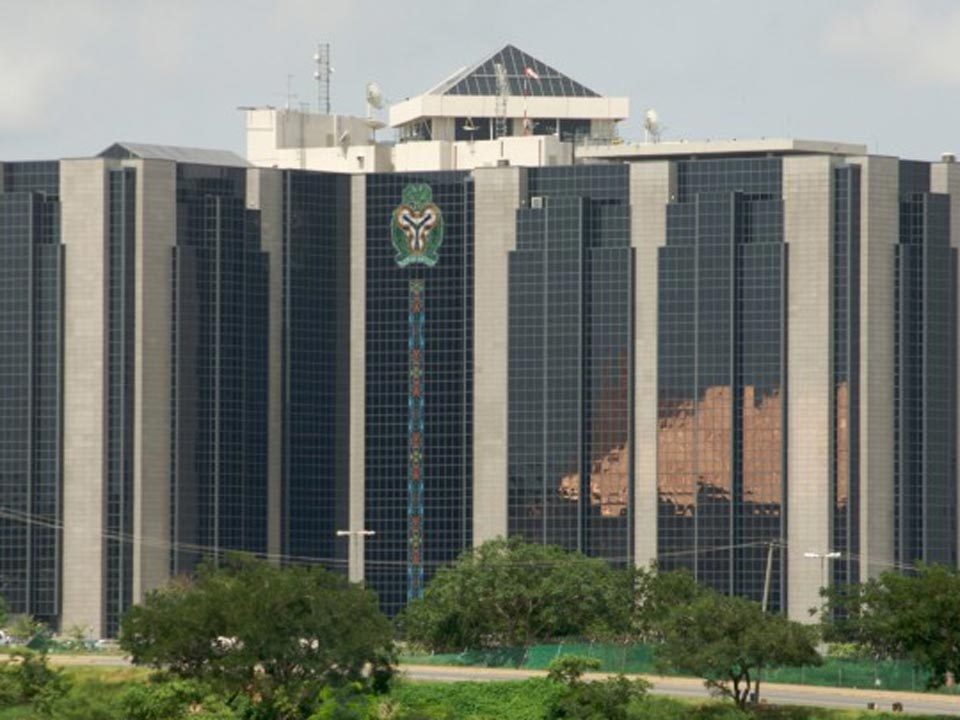Article Update: CBN’s efforts to boost Nigeria’s economic growth

Nigeria Update: Investors lose N239 billion in four trading days
April 9, 2018
Nigeria Update: ‘How Nigeria can stimulate stock market investment, boost liquidity’
April 9, 2018
Opening Pleasantries — Good afternoon ladies and gentlemen. I am indeed delighted for the honour to address this distinguished gathering. As I heartily welcome everyone present here today to this event, I would like to use this opportunity to acknowledge and appreciate in a very special way the management and staff of The Guardian Newspaper, not just for organising this event, but particularly for the foresight and thoughtfulness at publishing the report on “Financing the Economy”.
As you may know, it is a globally recognised fact that a well-functioning financial system is a sine qua non for economic growth and development. Having been given the privilege to preview the book and task of writing its foreword, I am certain that the exposé contained therein will indeed aid an understanding of the uniqueness of our financial structure and illuminate and fill the lacuna that exists between lenders and borrowers of fund.
Distinguished guests, it is no news that the level of credit in the domestic economy channelled to productive private sector is critically below the levels required to place our economy on the path of balanced, sustainable, and inclusive growths. As I noted in my foreword to the book, given the indispensability of finance, the entire international community — including the United Nations.
Member states, multilateral institutions, civil society groups, and the private sector — have adopted the contemporary concept of financing for development to update the mechanisms and tools of financial flows in order to fund initiatives for economic growth and development. Accordingly, emphasis on financing economic growth and development is distinctively placed on inclusiveness, accessibility, human capital and factor productivity. In most cases, private funding in the form of bank credit is often considered an important determinant of the level of productive investment in an economy.
Like many other emerging and developing countries, Nigeria has got its own peculiarities in the area of financing the economy. In addition to these peculiarities, the sheer size of our economy makes it impossible for neither the public sector nor the private sector to independently satisfy the financing requirements of the economy; hence, the need for an effective public private partnership and for each to play its individual roles. Typically, the aspect of private sector finance as seen by the majority of Nigerians is basically concerned with credit from the banks for enterprise and investment purposes.
In recognition of the importance of financing for economic growth and given its understanding of the implication of risk management in credit allocation, the Central Bank of Nigeria adopted a two prong approach to resolve the insufficient credit flow to the private sector and concomitantly accomplish its development finance function.
The first of the two approaches include a de- risking of bank lending to the private sector through a wide-range of credit guarantee schemes undertaken by the Bank. The second involves direct intervention initiatives in key high impact sectors including agriculture, MSMEs, manufacturing, power, etc. Both approaches, which effectively reflect public private partnerships in financing economic growth, are designed to ensure the constant flow of credit to vital sectors of the Nigerian economy.
Ladies and gentlemen, as most of you would recall, a number of exogenous global shocks exposed the vulnerabilities of the Nigerian economy over the last couple of years. Consequently, we saw depressed GDP growth, which culminated in a recession in 2016. We also witnessed rising Inflation, which peaked at almost 19 percent in Jan. 2017. There was also persistently rising unemployment rate to 14.23 percent in 2016Q4 from 6.41 percent as at 2014Q4. We saw a significant depreciation of the exchange rate, reaching N525:US$1 in February 2017 and witnessed a fast depletion of FX Reserves which bottomed out at about US$23.6 billion in October 2016 from as high as US$40 billion in January 2014.
The vulnerability of the Nigerian economy to those global shocks simply reflected the fact that we were unable to sufficiently produce what we consume. Hence, the unwarranted dependence on foreign goods. But why are we unable to sufficiently produce what we consume? A number of interrelated factors are responsible for this. First of these is the dependence on oil sector to provide the foreign exchange needed to finance our imports. Related to this is the poor diversification of the economy and low factor productivity in key non-oil sector. There is the issue of an ostentatious and elitist taste for imported goods in Nigeria. But, perhaps the most important of these factors is the inadequate finance to strategic high impact and high employment multiplier sectors.
To counter the adverse effects of the global shocks the CBN embarked on a number of short- term and long-term policies. These include a cycle of monetary tightening to rein in inflation; external reserves management through the restriction of FX for imports of goods that can be produced in Nigeria. We established a decisive withdrawal of the de facto subsidy for the importation of 41 non-essential commodities with unfolding successes. We also introduced various policies to eliminate FX speculators, bettors, round-trippers and rent-seekers and thereby stabilise the exchange rate with the establishment of the Investors-Exporters Window among others.
Distinguished guests, I must mention that of all our efforts, the most relevant to today’s theme is our development finance strategy. Aimed at diversifying the economy away from over- dependence on oil revenues and consistent with its development agenda, the CBN initiated a number of development finance activities. These schemes are broad-based and spread across various sectors as follows:
• Agriculture—The intervention schemes in the agriculture sector (including the ACGSF, CACS, NIRSAL, ABP etc.) aim to improve domestic supply of these commodities and eventually moderate pressure on foreign reserves. Under these we have:
Agricultural Credit Guarantee Scheme Funds (ACGSF): The objective is to stimulate lending by banks to the agricultural sector by providing guarantee cover for their exposures to agricultural activities. The Interest Drawback programme (IDP) as an innovation under the ACGSF provides 40 percent post-payment interest rebate to farmers under the scheme who settles their loan fully. Achievements: N101.6 billion has been guaranteed in favour of 1.04 million farmers under the scheme.
Commercial Agriculture Credit Scheme (CACS). The objective is to fast-track the development of the agricultural sector by providing credit facilities to large-holding and commercial agricultural enterprises at a concessionary interest rate with a view to enhancing national food security, increase output, generate employment and diversify the revenue base. Achievements: ₦393.5 billion has been released to 478 large scale agricultural projects since inception in 2010.
Real Sector Support Facility (RSSF). The CBN is poised to disburse up to ₦400 billion at only 9.0 percent interest rate. This strategic initiative targets projects in manufacturing and agriculture, given the mutual interdependence of both sectors for the complete industrialization of agro-allied business.
Nigeria Incentive-based Risk Sharing System for Agricultural Lending (NIRSAL). The CBN has also made efforts to finance agricultural value- chain activities through NIRSAL, which was established in 2011 and is now incorporated as a non-bank financial institution. The objective is to de-risk lending to agro-allied businesses through ownership and sharing of risk by all parties in the lending agreement. Under NIRSAL, more than 224 projects valued at over ₦33.0 billion were guaranteed for the Federal Ministry of Agriculture’s Growth Enhancement Scheme.
Anchor Borrowers’ Programme (ABP). This is designed to create an ecosystem that links Smallholder Farmers to local processors; improve productivity in identified commodities with high domestic production potential; and also build capacity of Small Holder Farmers. It is basically designed to efficiently organize production in specific agro-allied value chains. The programme has created a unique funding platform for financing small holder farmers in Nigeria under a value chain approach that guarantees the supply of quality inputs at the right price and time to suit production cycle and also provides a guaranteed market through anchors/aggregators that serve as off-takers to the farmers.
As we speak, domestic rice production has increased many folds and its imports have crashed substantially. While Kebbi State alone is expected to produce over two million metric tonnes of rice annually, employees at Labana Rice Mills are trying to keep pace with demand, processing 320 tons of rice a day, a 250 percent increase from the previous year. As a result of this we have seen sharp drop in imports of rice from several countries.
• Power—Industrialization will not be feasible if the power challenges are not fixed. Hence, in conjunction with stakeholders in the power sector, the Bank established a Special Purpose Vehicle, in the form of a low interest facility, to discharge existing legacy gas debts that had undermined gas supply to generating power plants in the country.
This fund, which has about ₦213 billion, is aimed at improving investment and production in the power value chain. We hope that these will have a multiplier and indirect effect on agro-allied businesses in Nigeria.
• Micro, Small and Medium-Scale Enterprises (MSMEs)—These are recognized globally as the nucleus of sustainable growth, job creation and poverty reduction. In Nigeria, the greatest challenge of the 17.3 million MSMEs in operation is the poor access to affordable financing; leading to an estimated financing gap of about N9.6 trillion. In view of this, the CBN established a ₦220 billion Micro, Small and Medium Enterprises Development Fund (MSMEDF) to provide concessionary finance to MSMEs.
Ladies and gentlemen, in light of these and other policy responses, I am delighted that the Nigerian economy is experiencing a cyclical upswing and consolidating its recovery. We have seen a steady growth in real GDP from a contraction of -1.5 percent in 2016 to an expansion of 0.8 percent in 2017. A fall in headline inflation from a peak of 18.7 percent in January 2017 to 14.3 percent in February 2018. Stabilisation and convergence of the exchange rate around ₦360/ US$1 today from about ₦525/US$1 in February 2017. Increased FX supply with over US$20 billion inflow to the I&E window since inception in April 2017. Strong recovery of external reserves from just over US$23 billion in October 2016 to over US$46.7 billion as of March 29, 2018. Improvements in the capital market metrics. Improvement in the World Bank’s “doing business indicators with Nigeria progressing 24 notches.

